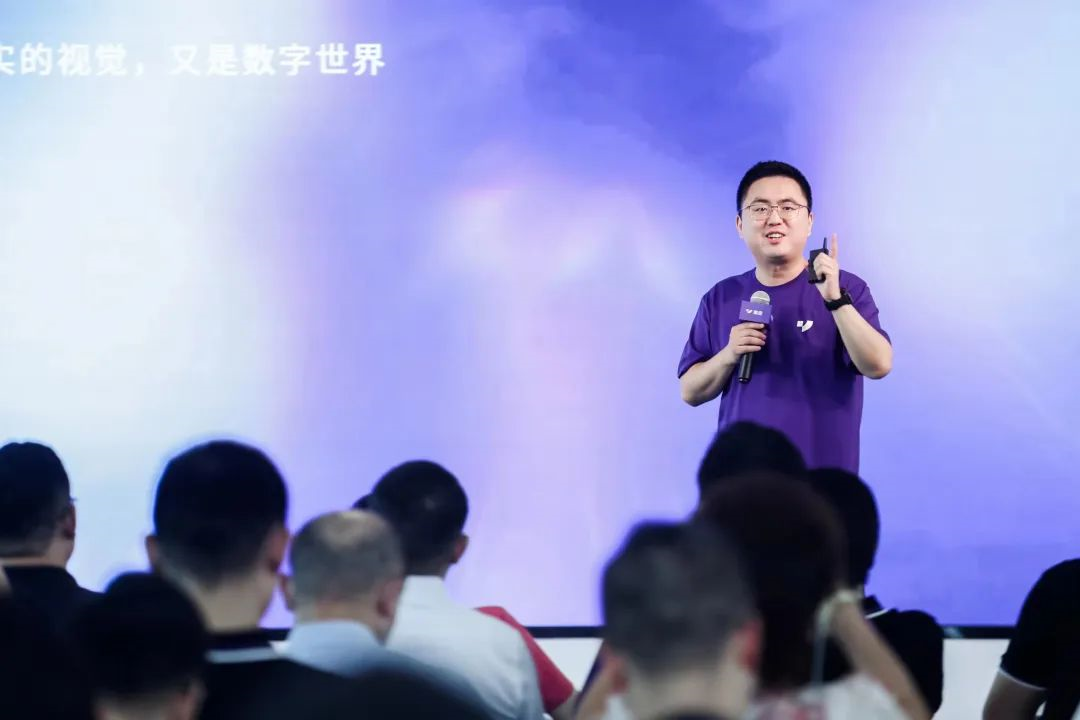Author | Zhu Shiyun
Editor | Wang Lingfang
“As a latecomer in the industry, where does Jidu’s confidence come from in terms of electrification and intelligence?” Jidu’s intelligent driving and control business president, Li Yin, and Liu Tong, general manager of Nvidia’s automotive business in China, asked the question that the media wanted to know on the spot as suppliers and partners.
On August 8, Jidu announced the “2880 plan” at the first Automobile Robot Ecological Partner Conference, which means that “Jidu will have the ability to deliver 800,000 automotive robots annually by 2028”.
“Our production capacity and sales plan are consistent.” Jidu CEO Xia Yuping said at the conference.
Jidu’s first mass-produced model will be unveiled at the end of this year and delivered in 2023. This means that Jidu only has a short period of five years to achieve the leap from 0 to 800,000 vehicles. In comparison, Wey Xiori approached the threshold of 100,000 vehicles sold annually only in 2021, while Tesla’s global sales last year were “only” 936,000 vehicles.
Even though the penetration rate of pure electric new energy vehicle products in China has exceeded 10%, and has entered a period of rapid growth. “However, how to achieve an annual delivery of 800,000 vehicles in 5 years? Jidu’s approach is to become a mixture of XPeng and Ideals.”
Delivery of Full-domain Autonomous Driving Assistance Capability
“(My confidence comes from) the fact that no company in China currently has the ability to deliver full-domain autonomous driving assistance,” Xia Yuping answered the question of his partners, “The first function that customers will experience from our sales is not the audio or seats, but the advanced point-to-point autonomous driving assistance capability.”
“Advanced intelligence” is regarded by Jidu as its core competitiveness. In 2023, Jidu’s first mass-produced automotive robot product will have the best “door-to-door, start-to-stop” advanced autonomous driving capabilities in the industry.
To put it plainly, compared with other players from lane keeping to high-speed navigation, and city intelligent navigation functions, from L2 to L2+, Jidu will directly land on the first mass-produced vehicle and approach the L3-level intelligent driving assistance function in the city.
Moreover, even if they are both city intelligent navigation, Jidu officials told “Electric Vehicle Observer” that “it will not be limited to the use of high-precision maps, but will cover as many cities as possible based on the ability to supplement based on pure vision and lidar.”
Confidence naturally comes first from Jidu’s autonomous driving “brain,” based on the L4-level Baidu Apollo’s core algorithm model after dimensionality reduction.The Observer of Electric Vehicles has learned that, in the early stage of the data iteration system of Jidu Intelligent Driving Assistance System, it will continue to cooperate with Baidu. At the same time, Jidu is also building its own system.
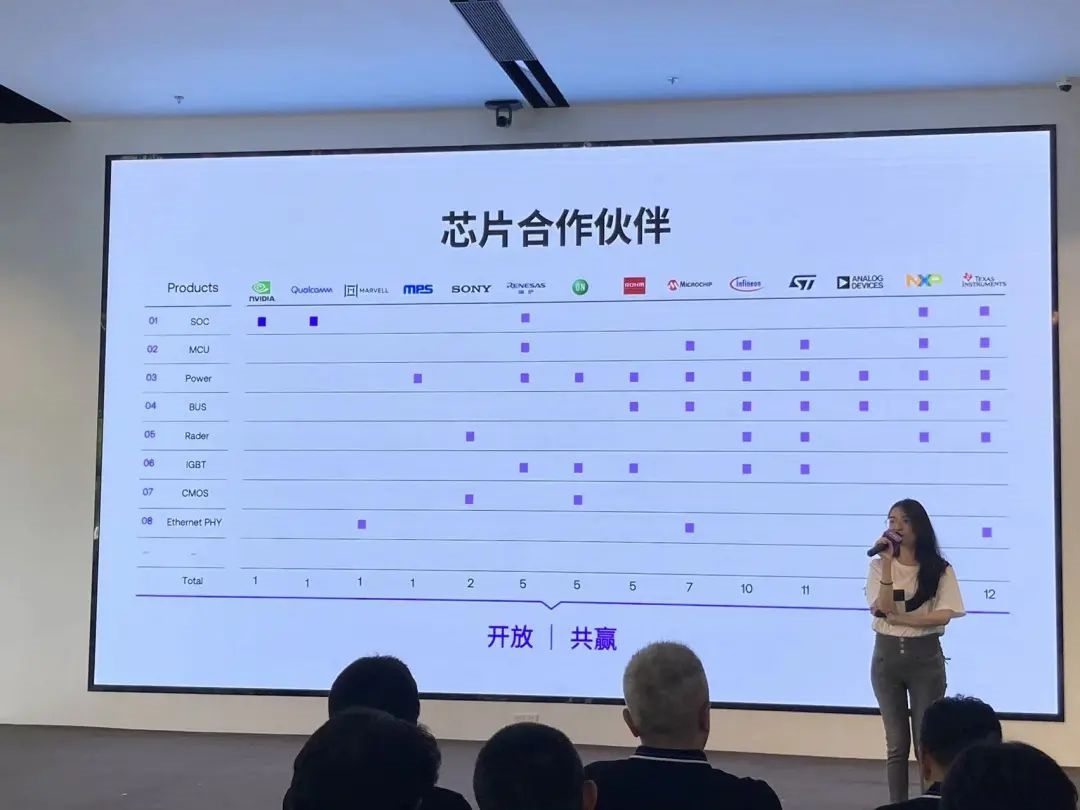
“At present, we have not seen a timetable for Tesla’s fully capable FSD to land in China,” Xia Yiping said, “and only one company in my mind can achieve (door-to-door) high-level autonomous driving capability in China, and the final outcome still depends on the products.” The Observer of Electric Vehicles speculates that this “one company” is XPeng Motors. It is reported that XPeng Motors has completed the city NGP and is promoting relevant compliance work.
On August 1, the “Shenzhen Special Economic Zone Intelligent Connected Vehicle Management Regulations” was officially implemented, dividing the management of the use of autonomous driving vehicles and the determination of rights and responsibilities in the event of a traffic accident.
High-end Hardware with Software Capability
In addition to the “brain” from Apollo, a number of high-performance hardware products that have been mass-produced and launched for the first time have become Jidu’s source of confidence.
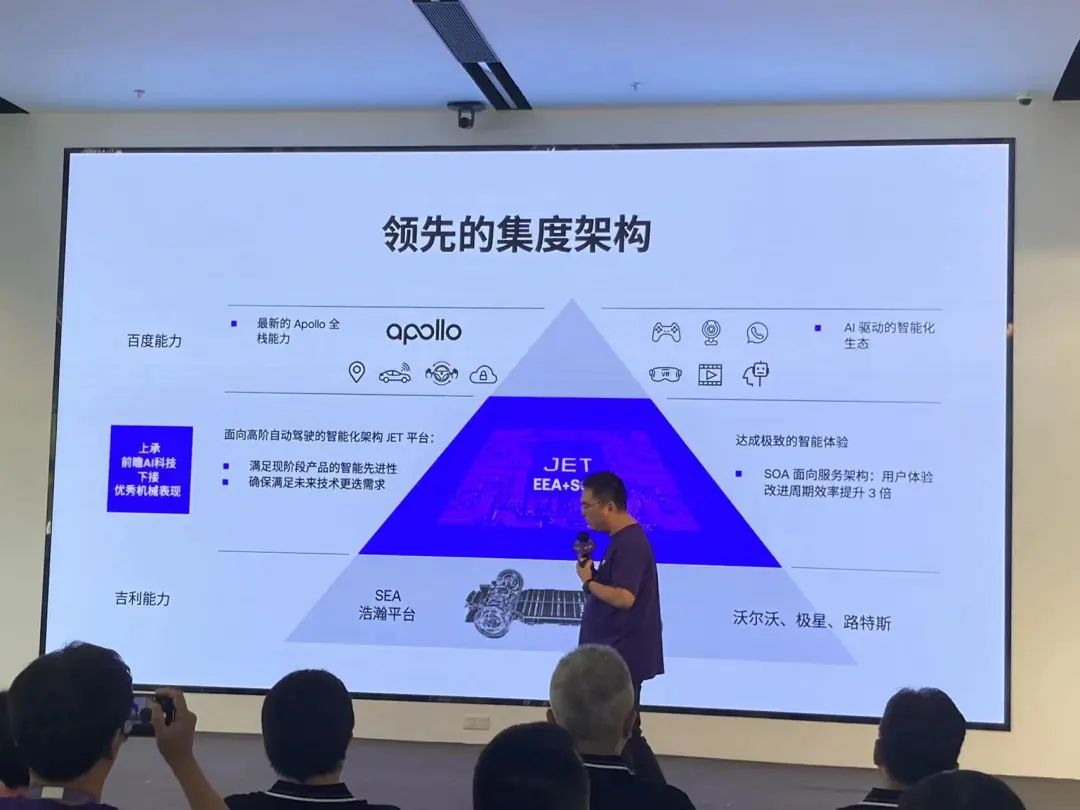
The Qualcomm 8155 chip has just become one of the symbols of high-quality intelligent cabins, and the Qualcomm 8295, which has an 8-fold increase in computing power, will be launched on Jidu’s mass-produced vehicles next year. Its 30TOPS computing power not only supports Jidu to achieve the industry’s first intelligent voice assistant that can be completely offline but also becomes a redundancy backup system in the field of intelligent driving――8295 + a separate forward-looking camera + a separate millimeter-wave radar.
When the intelligent driving system fails unexpectedly, this redundancy system will start to help the vehicle achieve emergency safety measures such as deceleration and parking on the side of the road.
It is worth noting that the redundancy system for intelligent driving in the industry used to be located in the field of intelligent driving, and it was an independent computing chip physically separated from the main SoC chip.
However, Jidu entrusted the redundant computing tasks to the 8295 in the intelligent cabin domain. On the one hand, it is based on the large computing power of the 8295. On the other hand, it can be seen that Jidu’s cross-domain integration and its system software capability that mobilizes driving domain resources through the cabin domain.
In addition, compared with the 8155, the 8295 is further improved in CPU computing power and rendering, with faster program calling and the ability to support larger high-definition images. Therefore, the UI interaction system of Jidu’s cabin will no longer be traditional card-style, but it will project 3D-rendered “virtual reality” on the largest one-piece screen of the same size.
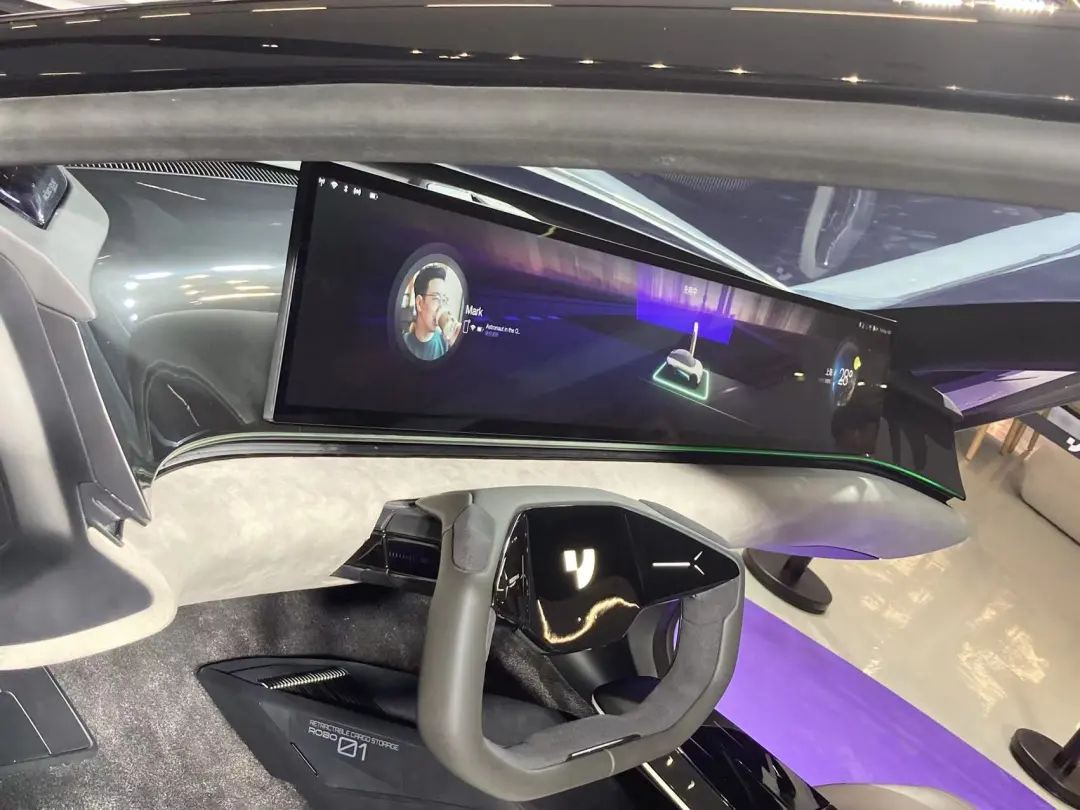 Divergent will also launch the production of ZF’s steer-by-wire system in China, “The vehicle will no longer need a mechanical connection between the steering wheel and the front axle through the steering column, but will transmit the driver’s steering instructions directly through electrical signals”, said Wolf-Henning Scheider, CEO of ZF.
Divergent will also launch the production of ZF’s steer-by-wire system in China, “The vehicle will no longer need a mechanical connection between the steering wheel and the front axle through the steering column, but will transmit the driver’s steering instructions directly through electrical signals”, said Wolf-Henning Scheider, CEO of ZF.
Based on the steer-by-wire system, Divergent will achieve a foldable square steering wheel design on its mass-produced vehicles.
6 Models to Accomplish 800,000 Vehicles
With advanced autonomous driving assistance capabilities, Divergent will take the ideal single-product hit route to support its ambitious goal of 800,000 vehicles by 2028.
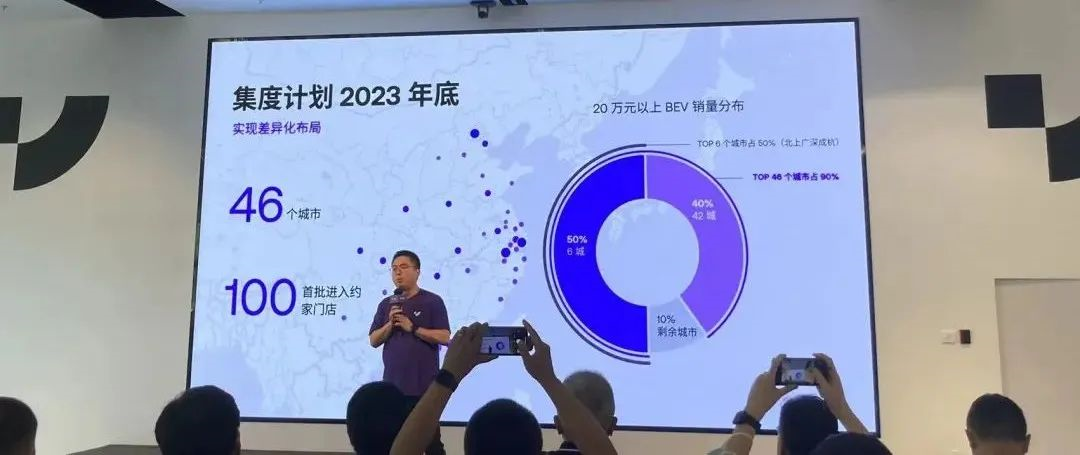
Xia Yiping revealed that Divergent is about to release the first mass-produced limited edition vehicle, which is expected to be delivered in the second half of 2023. The second model is expected to be delivered in 2024. Thereafter, Divergent will launch a new product at a rate of one model per year, achieving a product line of six models by 2028.
Six models compared to the goal of 800,000 vehicles means each vehicle must become a hit model with annual sales exceeding 100,000 units. Moreover, Divergent’s official statement to the Electric Vehicle Observer indicated that its car models will reduce the variety of configurations as much as possible, in order to further improve its production efficiency and scale effect.

A model that sells over 100,000 units annually was known as a “miracle car” even in the era of gasoline-powered vehicles; such a sales pillar is rare even among multinational automotive brands. While Divergent’s ONE model showed this possibility, the difficulty of achieving six models to reach the 800,000 annual goal is still imaginable.
Currently, Divergent’s first brand experience center will open in Shanghai within the year, with the first batch of stores planned to enter 46 domestic cities in 2023, initially completing the layout of a sales network of 100 stores nationwide.
“Our confidence comes from our understanding of trends and markets,” Xia Yiping painted a picture: “In the future, when our sales team displays vehicles to customers, they will directly activate the autonomous driving function in the bustling area of Shanghai’s Lujiazui… We do not play futures, but are based on our confidence in our autonomous driving capabilities.”
This article is a translation by ChatGPT of a Chinese report from 42HOW. If you have any questions about it, please email bd@42how.com.
